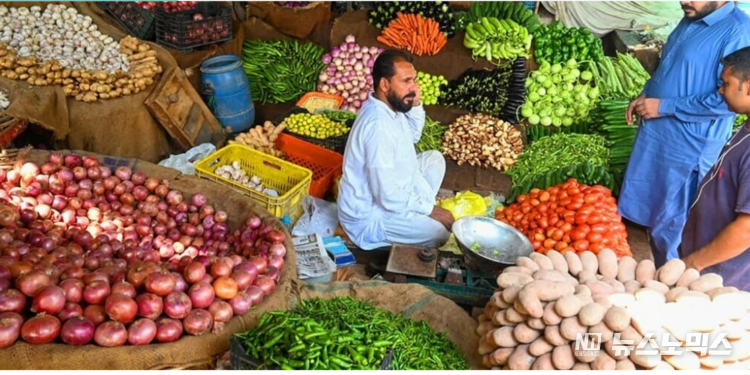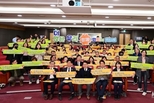
Newsnoimics AJAY ANGELINA reporter | Pakistan Bureau of Statistics (PBS) released a data on Friday 12 according to which, the prices of 23 essential items increased on a weekly basis includes Wheat Flour (6.75%), Bread (4.85%), Garlic (4.51%), Eggs (4.17%), Pulse Moong (4.11%), Rice Basmati Broken (3.33%), Rice Irri-6/9 (2.63%), Onions (2.44%), Pulse Gram (2.39%), Pulse Mash (1.69%), Pulse Masoor (1.65%) and Mustard Oil (1.56%), non-food items, LPG (5.24%) and Washing Soap (1.89%).
On the other hand, decrease is observed in the prices of Tomatoes (12.30%), Potatoes (7.75%), Chicken (4.46%), Vegetable Ghee 1 Kg (0.29%), Cooking Oil 5 Liter & Vegetable Ghee 2.5 Kg (0.11%) each and Sugar (0.08%).
During the week, out of 51 items, prices of 23 (45.10%) items have been increased, and 07 (13.73%) items decreased while the other 21 (41.17%) items remained stable.
The year-on-year trend depicts an increase of 31.75%, Onions (437.21%), Chicken (80.51%), Tea Lipton (65.41%), Eggs (61.63%), Diesel (60.63%), Wheat Flour (56.11%), Pulse Moong (52.97%), Rice Basmati Broken (51.05%), Salt Powdered (49.50%), Petrol (48.21%), Rice Irri-6/9 (46.78%) and Pulse Gram (45.80%), while decrease is observed in the prices of Chilies Powdered (22.98%), Electricity for Q1 (13.96%) and Gur (0.70%).
Food inflation had skyrocketed to nearly 38% in rural areas and it also significantly jumped to 32.7% in cities
last month, as per PBS data.
Hafiz Pasha, the former finance minister by addressing members of the Pakistan Industrial and Traders Associations Front (PIAF) warned on Tuesday January 17, that Pakistan’s overall economy is likely to remain in
severe stagflation in 2023.
He said, “the inflation rate could exceed 35%, if the government implements the key reforms agreed with the IMF, including a Rs50 levy per litre on POL, an electricity tariff hike of 40%, doubling of the gas tariff, and shift to market-based exchange rate policy.”
“If the government does not implement the agreed reforms, it will lead to a termination of the IMF program and will virtually dry-up the country’s capital,” he added.
He also highlighted that “Our reliance on expensive foreign loans has proven to be disastrous. In the first 65 years, the country’s debt was $65 billion that jumped to almost $130 billion in the next seven years as we enhanced our reliance on high interest loans that are difficult to payback.”
Mr. Kaukab Iqbal, the Chairperson of the Consumer Association of Pakistan said, “the rising prices of food items, particularly fresh fruits, milk, and chicken are having a major impact on the livelihoods and nutrition levels of all families. But much of the burden of this falls on the poor as higher prices put protein and vitamin-rich foods out of their reach.”










